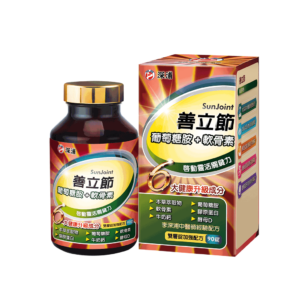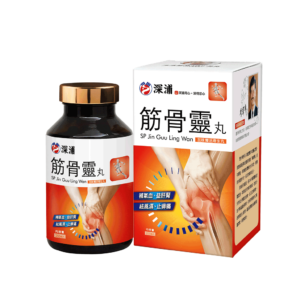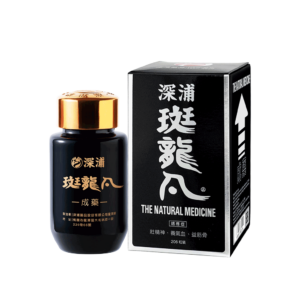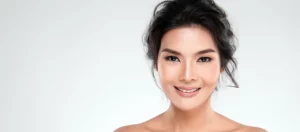
When Should We Start Saving Performance Bone?
Do you know when rapid bone loss begins? The answer is “Age 35”! When you are still working hard at sprinting for your career, it

Rheumatism and sciatica are common problems among modern people. According to traditional Chinese medicine doctor Sheng-Pu Lee, these patients all share the common symptom of “weakness in the waist.” In fact, the waist is the center for nerve transmission in the human body and is also known as the second heart. This is because the area below the waist is where the physiological functions take place, the source of the continuous cycle of life. Therefore, if one is elderly or lacks sufficient Qi, weakened physiological energy can cause discomfort in the waist, which can worsen and develop into disease.
In Buddhism, there are three buddhas of the three periods: the past Buddha “Dipankara,” the present Buddha “Tathagata,” and the future Buddha “Maitreya.” This same concept can be used to describe the human body: the brain’s memory stores all past experiences, the eyes, ears, nose, tongue, and other senses represent the present because only the current moment can be seen and heard. The future of life comes from physiology, which refers to the lower Dantian, bladder, reproductive organs, and anus. These areas are where the body’s energy is concentrated, also known as the “Mingmen” or gate of life.
The greatest energy of life comes from the future. Dr. Sheng-Pu Lee explains that when one is young, the waist is strongest. However, as one grows older and lacks sexual Qi and vitality, the Mingmen weakens, leading to many people experiencing lower back pain. This is because the waist connects to the tailbone and anus, which in turn connects to the sexual system. When one has sufficient sexual Qi, the rectum near the coccyx will generate heat, giving the muscles near the coccyx and buttocks strength. Conversely, if one’s sexual Qi is weakened, not only will their stool become soft and thin, but their waist will also lack strength, making it easier to strain and cause problems such as nerve compression, lower back pain, and sciatica.
There is an absolute relationship between joints and physiological energy. In traditional Chinese medicine, joints represent the kidney Qi. When young and full of vitality, the strength and flexibility of joints are excellent, allowing for easy movement and a sense of vitality. If joints are strong, they can continuously emit heat, maintaining
However, as the life gate gradually weakens, the ability of joints to emit heat is insufficient. When exposed to external cold air and humidity, the nervous system lacks heat to resist, allowing the cold air to invade and cause the bodily fluids to condense and thicken. Dr. Sheng-Pu Lee emphasized that if bodily fluids appear as liquids rather than Qi, it can lead to poor circulation and insufficient heat diffusion, making it easier to get injured during exercise. Once injured and exposed to cold air, a vicious cycle can occur, leading to rheumatism.
The body of rheumatoid arthritis patients is like a weather station – when their joints feel uncomfortable, it means that the weather is going to change. This is because before a change in temperature, the air pressure will first change. Rheumatoid arthritis patients lack sufficient inner strength, like a lack of protective shield, so external weather has an effect on their body.
Long-term rheumatism can lead to tissue degeneration or joint deformation. Therefore, in treatment, the focus is often on how to adjust the joints back. However, many surgeries are unsuccessful. If the disease is caused by a protrusion pressing on nerves, surgery may be helpful. But if the cause is due to insufficient energy in the body, surgery may not be effective.
Therefore, to have good bones and muscles and avoid rheumatism and sciatica, Dr. Sheng-Pu Lee emphasized the cultivation of one’s own Qi and to prevent early weakening of the life gate. While medication can help restore bodily vitality, it is essential to start with a healthy lifestyle: regular daily routine, balanced diet, and regular exercise to ensure sufficient bodily Qi. Depending solely on medication may not yield good results and could deplete bodily Qi.
Originally from: Health.chinatimes.com
Health Chinatimes/ Reporter Yi-Ning Zhang reports 2009.08.17
http://health.chinatimes.com/blog/herbs/index_at2456.html




Do you know when rapid bone loss begins? The answer is “Age 35”! When you are still working hard at sprinting for your career, it

Taiwan people are living longer and longer, according to the Ministry of Interior statistics, the average age of remaining life of women is as high

The biological age of women is measured in “seven years”. Seven times six is forty-two. After a woman turns forty-two, she enters the last seven